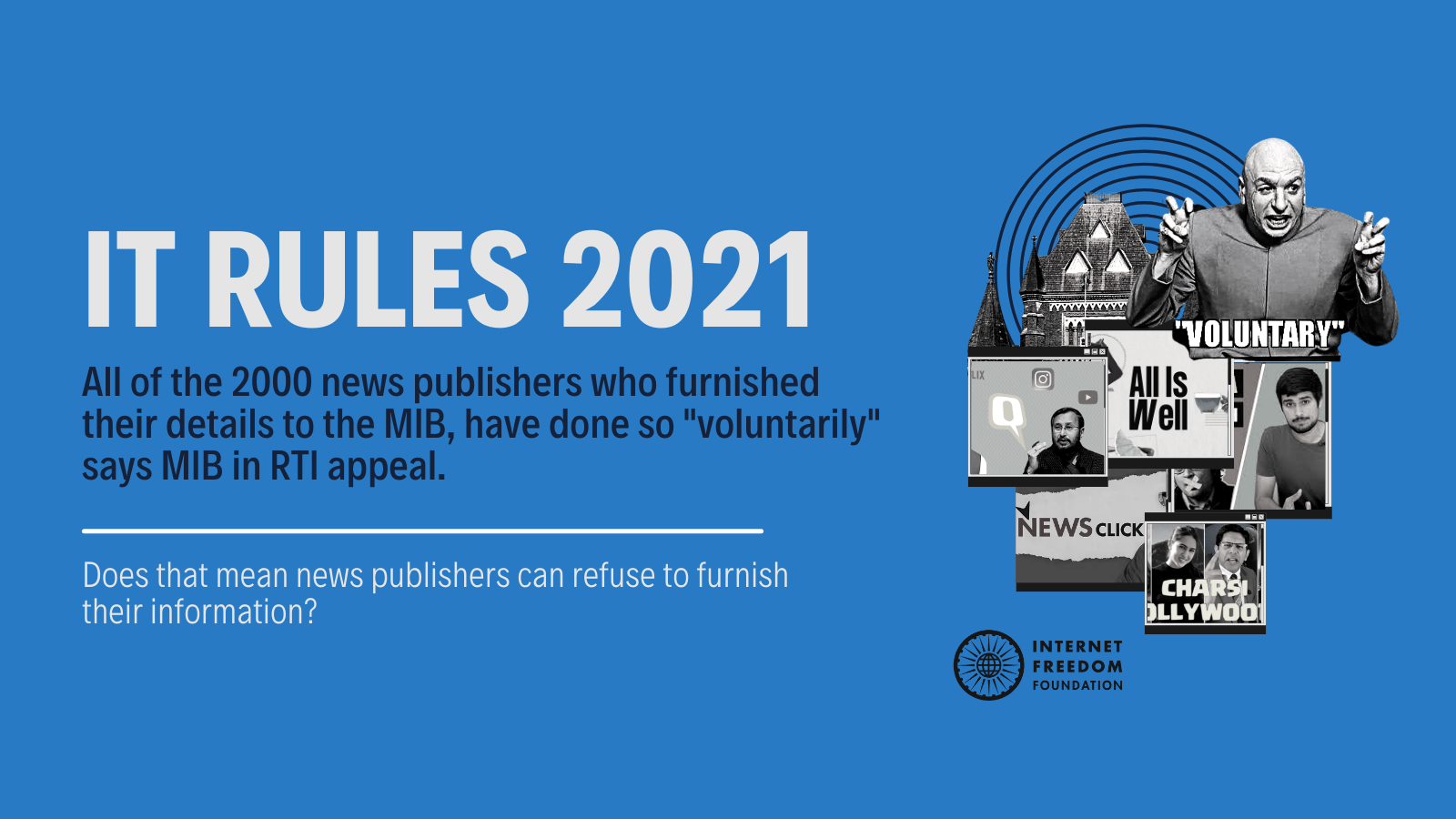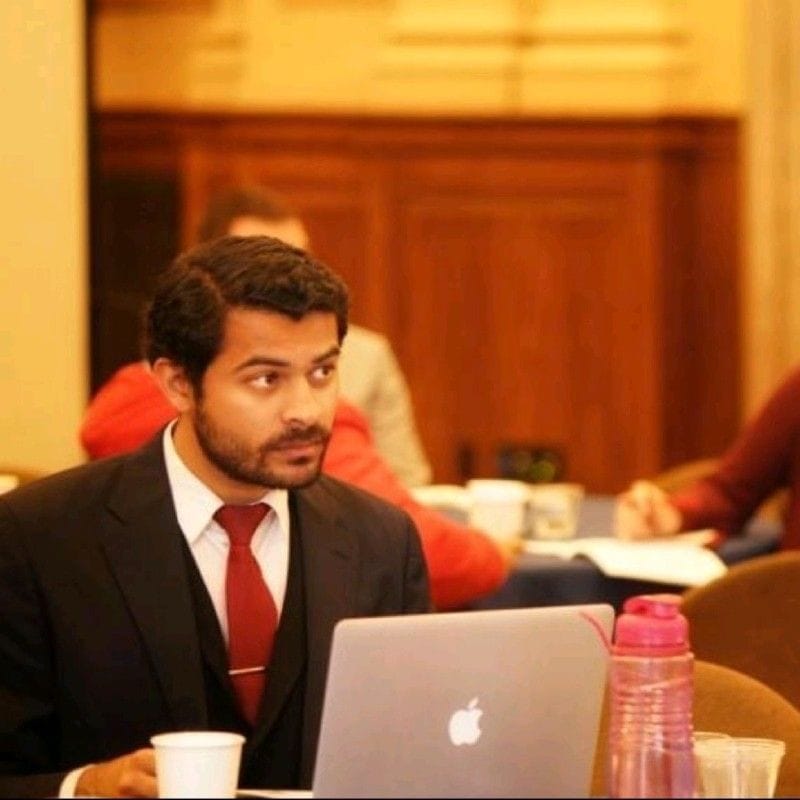
tl;dr
We had filed an RTI Application with the the Ministry of Information & Broadcasting (‘MIB’) seeking information about certain notices issued by MIB to publishers of news media asking them to furnish information under Rule 18 of the Information Technology (Intermediary Guidelines and Digital Media Ethics Code) Rules, 2021 (‘IT Rules’). While the MIB revealed that 2100 publishers have furnished information already, it refused to provide information on how many notices were sent to publishers and why they were sent despite the stay on operation of Rules 9(1) and 9(3) of the IT Rules. Accordingly, we filed a first appeal on 25.01.2022. Now, in appeal proceedings, MIB has claimed that all 2100 publishers voluntarily offered information about themselves in a fiduciary capacity and has refused to provide further information citing exemptions under the Right to Information Act, 2005 (‘RTI Act’) and made some interesting observations.
Why should you care?
News publishers were sent notices under the IT Rules, even after major parts of the IT Rules were stayed. While there was no stay on the Rule that allows the MIB to seek this information, there is a stay on the Rules that lay out the 3-tier regulatory mechanism, which is the purpose of seeking such information in the first place. The stay was ordered by the Bombay and Madras High Courts after reaching a finding that the IT Rules may “threaten the independence of the press”, and the very existence of “the fourth pillar of democracy”. When we asked how the notices were sent during the operation of the stay, the MIB said that news publishers have only offered this information “voluntarily”, i.e. that there is no compulsion to respond to them.
Background
Part III of the IT Rules regulates digital media by laying down a code of ethics to be followed by digital media, and by creating a 3-tier grievance redressal mechanism with the MIB at the top tier. The code of ethics regulates what kind of content can be published, how it should be classified, and how it should be displayed, and the 3-tier grievance redressal mechanism is empowered to punish any violations of the code with a range of measures, including deletion of news articles or OTT content. Part III of the IT Rules also contains Rule 18, which requires such publishers to furnish information about their entity in a prescribed format.
Operation of both, Rules 9(1) and 9(3), have been stayed by the Bombay and the Madras High Courts, which found that the IT Rules threaten the independence of the press. Nevertheless, we came to know that digital news media publishers received notices from the MIB asking them to furnish information regarding their entities. To find out more we filed an RTI application on 03.01.2022 with the MIB to (i) confirm whether this was true, (ii) seek information on the powers of MIB to issue such notices, and (iii) seek information on the total number/names of publishers to whom the notices were sent and who furnished information pursuant to the notices.
The MIB replied to our RTI application on 14.01.2022 and stated that (i) it had sent notices to publishers on 26.05.2021, followed by a reminder on 09.09.2021 seeking information pursuant to Rule 18 in a specified format, and (ii) more than 2100 publishers had furnished information pursuant to Rule 18. But it did not provide any other information relating to the legal basis of sending the notices after a stay was ordered, or the list of publishers to whom the notices were sent. The MIB didn’t even tell us how many notices were sent, only that 2100 replies were received. Not satisfied with this incomplete response, we filed a first appeal on 25.01.2022.
MIB’s response to the First Appeal
In its response, the MIB stated that the 2100 publishers that had furnished information had done so on a “voluntary” basis, and that the information was submitted in a “fiduciary capacity”. The MIB claims this despite issuing not one, but two notices to news publishers without clarifying the consequences of non-compliance. None of the notices or reminders also clarify to the recipients that information to be furnished under the notices is “voluntary”, or that news publishers can choose not to respond to the notices if they wish not to.
The notices also seek information about the internal grievance redressal mechanism of publishers. While there is no legal impediment to the operation of Rule 18 of the IT Rules, a holistic reading of Part III of the IT Rules shows that the purpose of collecting information under Rule 18 is to enable the MIB to identify news publishers so that it can regulate them under the IT Rules. And this purpose is currently stayed.
The MIB has still not told us how many notices the MIB has sent and how many publishers furnished information after the stay order. We will keep pursuing this information.
Important Documents
- Blogpost titled “Revealed: Over two thousand news publishers furnished their details to the MIB, despite Bombay HC’s stay” (link)
- First appeal filed by IFF dated 25.01.2022 (link)
- MIB’s Response dated 03.02.2022 to IFF’s first appeal (link)

